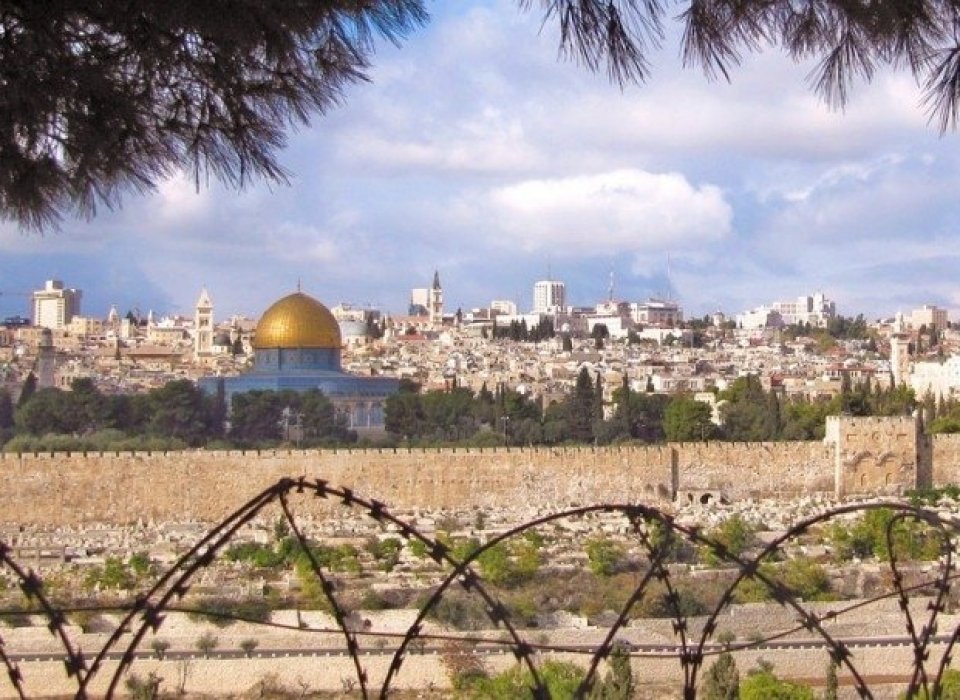The implications of normalisation with Israel

Israel has imposed itself through successive wars and military victories since the 1948 war
By Shafiq Nazim al-Ghabra
Israel has also exploited American support which is committed to making it militarily superior to the armies of the Arab states. Israel is the only country possessing nuclear weapons in the Middle East. However, more importantly, on the other hand, Israel’s military victories did not offer it recognition and legitimacy, nor did it solve the problems of water, economy and trade. Israel needs markets and openness to the Arab region. What Israel wants from the Arabs is clear, acceptance of it, acceptance of the results of its victories, acceptance of its occupation of Jerusalem and Palestine, and acceptance of it as one of the strongest states in the Middle East.
In essence, “normalisation” as I understand it is not a question of formality, but it is, in essence, normalisation with the Israeli occupation and Zionism and acceptance of Israeli and Zionist narrative regarding the land and the population, which includes abandoning the narrative opposing Zionism and the occupation. The first person to speak of this kind of normalisation (normalisation without rights, demands, or the right to self-determination) is Abba Eban, the Israeli foreign minister who, in the 1960s, believed that normalisation aims to build normal relations with the Arabs at all levels (totally disregarding the Palestinian cause).
Normalisation without justice is the Israeli goal that will open the door to more Jewish immigration and allow Israel to take more Palestinian land. This will be a new formula for instability in the Middle East, Jordan and surrounding countries. In the past, Israel established peace with Egypt without the Palestinians, and this peace resulted in Israel’s ability to expand its settlements and Judaisation efforts, as well as its waging of several wars, most importantly the Lebanon war 1982. Peace without justice means the continuation of Israel’s settlement and expansionist project amid the disintegration of the Arab situation and amid increased Arab reliance on International and Israeli forces to protect their minimum level of security.
Therefore, it is assumed that the enemy at this stage is Iran, not Israel, to provide new blood for the normalisation project. It is clear at the same time that this trend will not weaken Iran but will increase its determination, which will strengthen its alliance with Turkey, Russia and China. Focusing on the confrontation with Iran and normalisation with Israel is a new formula for conflict in our region. Even if there is a real conflict with Iran in the Gulf, the region will find that it has no political cover, no regional cover and no real support from the United States.
There are different types of normalisation. This is why the definition of normalisation does not include every announced meeting aimed at explaining the Palestinian cause and the Arab point of view in international forums because this would prove the Palestinians’ rights and the facts and this is not considered normalisation. However, any meeting aiming at engaging Israel in meetings in the region and does not aim to discuss the Palestinian cause becomes a model of normalisation. Normalisation means normalisation with the occupation and with uprooting, and at the same time includes the abandonment of historical rights and the rights of justice.
This is not the first time that a project for normalisation has taken place. Didn’t most of the Arab world meet at the Madrid Conference in 1991, when the Gulf States, Syria and Egypt participated in a carefully organised conference with Israel? Who doesn’t remember the multilateral conferences held between the Arab and Israeli sides, along with the participation of Europe, Russia, the US, China and others?
Those conferences held in Arab and international capitals did not lead to anything. Instead, the most important figure on the Israeli side seeking peace (Prime Minister Yitzhak Rabin) was assassinated at that time by an Israeli Jewish extremist. The wars in Gaza since 2008, in particular, have made the Gulf states completely move away from the idea of peace. Even the Arab Peace Initiative put forward by the Arab countries and adopted by Saudi Arabia in 2002 has fallen into the swamp of Israeli attacks, Palestinian uprisings, and wars around Gaza and in southern Lebanon.
Questions of peace will remain in the Arab mind. We Arabs are peaceful societies, but we must be careful. How many normalisations with injustice have led to the worst wars? Any relationship based on injustice, the imposition by force, and occupation and does not include solutions to the problem will produce more conflicts and confrontations. Following the path of normalisation with Israel without justice in Palestine, without justice in the Arab-Israeli conflict, and without Jerusalem will only whet Israel’s appetite for more control and oppression directed at the indigenous people. If Israel were to stage a collective expulsion, what would the Arab countries do? If Israel were to do more than annexe Jerusalem and open the door to a new war (in light of the Arab weakness) what would the Arab world do? If Israel succeeds in imposing its control through further fragmentation of the Arab situation, will that lead to the stability of instability of the Arab system? These questions will remain with us for a while.
This article first appeared in Arabic in Al-Quds Al-Arabi on 14 March 2019
The views expressed in this article belong to the author and do not necessarily reflect the editorial policy of Middle East Monitor.
Source: Middle East Monitor

WRITE YOUR COMMENT